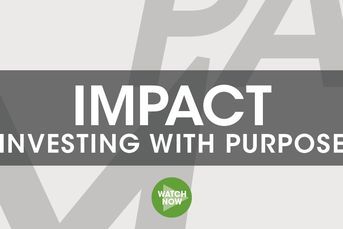What the new surge to U.S. equities means for the markets
Investors are returning to the U.S stock market after the worst selloff in seven months, sending $21 billion to stock ETFs
Investors are returning to the U.S stock market after the worst selloff in seven months, adding almost 52 times more money to exchange-traded funds that own equities than bonds.
About $21 billion has been added to ETFs that buy and sell American shares in the past two weeks as stock prices recovered, according to data compiled by Bloomberg. The deposits compare with about $407 million sent to fixed income since Feb. 11.
“Equities still remain the more attractive assets class and head winds for bonds will continue,” said Ernie Cecilia, chief investment officer at Bryn Mawr Trust Co. His firm oversees about $7 billion. “Consumer confidence is hanging in there pretty well. We see signs of broadening economic growth.”
Money is flowing back to equities after expanding corporate earnings and a strengthening economy boosted confidence that the bull market will extend into a sixth year.
The money sent to stock ETFs marks a reversal from January, when investors withdrew almost $14 billion from equities and deposited $1 billion into fixed-income ETFs, data compiled by Bloomberg show. The S&P 500 slid 5.8% between Jan. 15 and Feb. 3, the worst retreat since June 2013.
STOCKS REBOUND
After sliding in six of the eight days ending Feb. 3 on concern that turmoil in emerging markets would curb global growth, the S&P 500 has rebounded 6.3%, including a four-day gain ending Feb. 11 that was the biggest advance in more than a year. That surge concluded with a 1.1% rally as Federal Reserve Chairman Janet Yellen pledged to maintain Ben S. Bernanke’s policy of cutting bond purchases in measured steps.
The benchmark gauge has climbed 173% since falling to a 12-year low in March 2009, rising today as purchases of new homes unexpectedly climbed to the highest level in more than five years and retailers rallied. It’s little changed this year after jumping 30% in 2013, the best annual gain in more than a decade.
“There was an initial scare about emerging markets, which by the way may still have more to play out, that reversed those flows,” Kevin Caron, a market strategist at Stifel Nicolaus & Co., which oversees $160 billion. “Investors reluctantly return to the market and many hope to catch up on a bull market that has passed them by.”
Equity ETFs attracted $3.9 billion Tuesday, compared with about $250 million for bond funds, data compiled by Bloomberg show. Last year, a record $139 billion flew to stocks while fixed income took in $10 billion, the data show.
Treasuries were little changed this month after returning 1.8% in January, according to the Bloomberg U.S. Treasury Index. Losses this month have stemmed in part from flows out of fixed-income and into equity funds.
Equity mutual funds attracted $5.9 billion in the week ended Feb. 19, compared with $2.9 billion for bond funds, the Investment Company Institute said in an statement Wednesday.
Strategists see further gains for U.S. equities while projecting losses in Treasuries. The S&P 500 will climb 6% to 1,956 from Tuesday’s close, according to the average forecast from 21 strategists surveyed by Bloomberg.
The yield on the 10-year U.S. government bond will be 3.37% by year-end, according to a Bloomberg survey of economists, with the most recent forecasts given the heaviest weightings. The move would hand a 2.8% loss to an investor who purchases Wednesday, data compiled by Bloomberg show.
“Some rotation back into stocks is in order,” said Eric Teal, who helps oversee about $4 billion as the chief investment officer at First Citizens BancShares Inc. “Consumer confidence is picking back up with unemployment beginning to look better and no major global macro events on the immediate horizon. Sentiment looks strong and seems to be improving.”
(Bloomberg News)
Learn more about reprints and licensing for this article.







